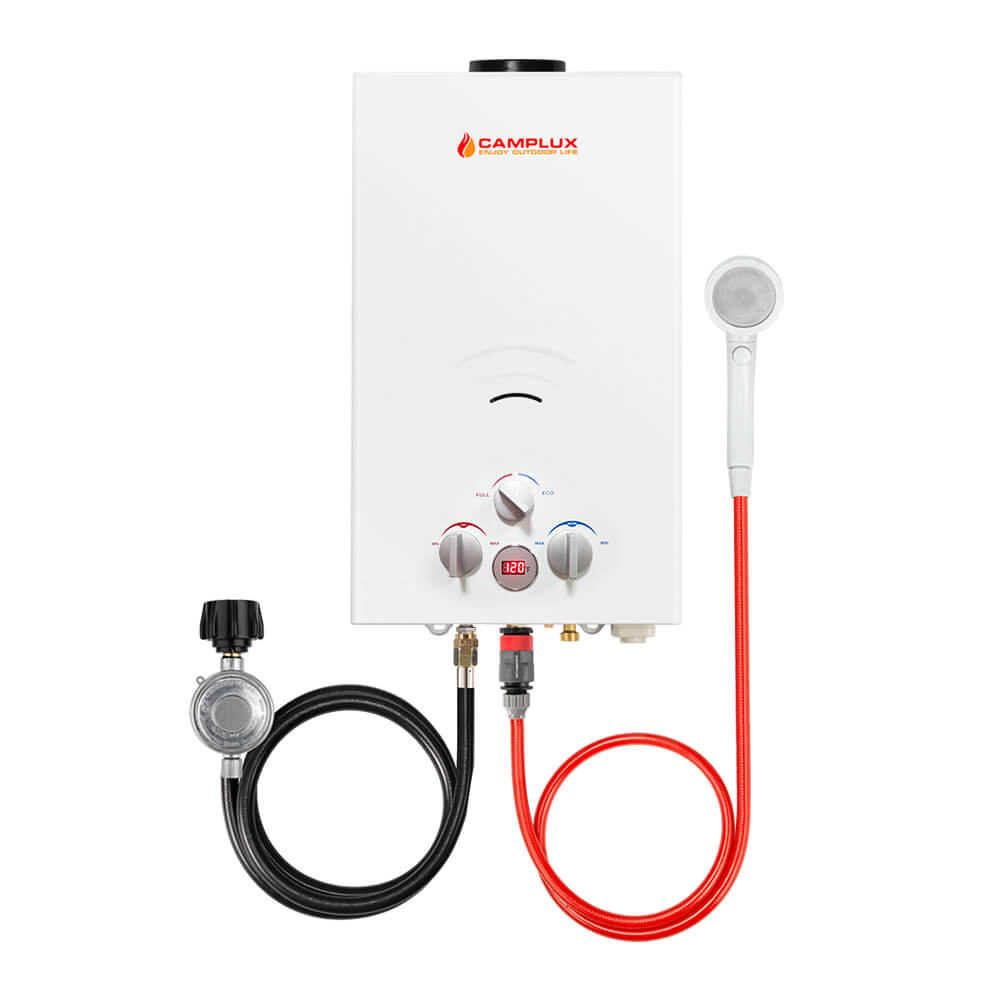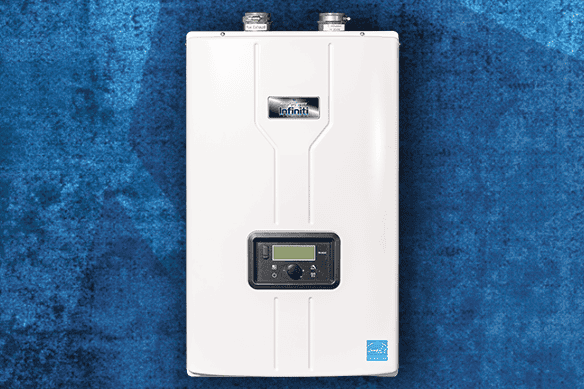They are making a number of good points on the subject of Pros and Cons of Tankless Water Heater overall in this article just below.

In a world where comfort and performance preponderate, it's not a surprise that house owners are regularly in search of smarter ways to manage their home's energy intake and comfort. One advancement that has actually gradually gotten popularity is the tankless hot water heater. However exactly what makes these systems stick out from the standard tank-based versions a lot of us matured with? Let's dive in and explore the benefits of tankless water heaters, aiding you decide if it's time to make the button in your home.
Introduction
Picture this: you enter the shower after a lengthy day, anticipating a relaxing cascade of hot water, just to be welcomed by icy droplets because the last individual utilized all of it up. Noise familiar? Traditional hot water heater store a set quantity of hot water, suggesting you're at the grace of that container's supply. Tankless systems, on the other hand, heat water on demand. No more going out mid-shower, no more fumbling with schedules simply to ensure warm water is readily available.
Comprehending Tankless Water Heaters
What Are Tankless Water Heaters?
Tankless water heaters, in some cases known as on-demand or immediate water heaters, supply hot water only as it's required. As opposed to keeping gallons of pre-heated water, these systems kick into activity the minute you turn on the faucet. Water travels through a warm exchanger, warming up in real-time, implying you obtain a nonstop flow of warm water without the need for a large container sitting lazily by.
How Do They Differ from Conventional Equipments?
Conventional heating systems hold a reservoir of hot water, making use of power to maintain that tank at a constant temperature. Tankless units get rid of the standing supply, reducing lost energy and the bulky impact of a large cylinder. Essentially, you're upgrading from a "stockpile" frame of mind to a "made-to-order" method.
Common Types of Tankless Units
Tankless water heaters typically can be found in 2 ranges: gas and electric. Gas designs tend to supply greater flow rates, perfect for bigger houses, while electrical designs typically serve smaller sized homes and are normally easier to mount. Furthermore, some systems are designed for point-of-use (offering one fixture) while others can manage the entire home's hot water needs.
Key Advantages of Tankless Water Heaters
1. Endless Warm Water Supply
Ever needed to schedule showers so everybody obtains their fair share of hot water? With tankless, that ends up being a thing of the past. As long as the heating system's circulation capability isn't gone beyond, you can take back-to-back showers without turning into a popsicle.
2. Energy Effectiveness and Price Savings
Say goodbye to heating a giant tank's worth of water and keeping it toasty throughout the day. Tankless heating systems lower standby power losses, which can decrease energy costs. While the initial price might be higher, the long-term savings frequently validate the investment.
3. Space-Saving Design
If your home is short on storage space, getting rid of the large tank maximizes useful space. Tankless units are compact and can typically be placed on walls, hidden in corners, or set up in limited energy wardrobes without hogging the entire space.
4. Longer Life expectancy
A well-kept tankless water heater can outlive its tank-based cousin. Typical containers could last 10-15 years, while tankless designs can maintain downing along for two decades or more, making them a solid financial investment over time.
5. Improved Water Quality
Keeping water in a tank can occasionally lead to sediment buildup or a slightly "off" preference. With tankless systems, fresh water is warmed right away, reducing the possibilities of sediment build-up and potentially providing cleaner-tasting water.
Considerations Before Changing
Though the advantages are compelling, it's a good idea to consider a few variables before fully committing.
First Investment Costs
Tankless heating systems normally feature a higher ahead of time price. In between the system itself and potential setup alterations, the initial price may give you sticker label shock. But remember to watch it as a long-lasting investment.
Installment Requirements
Depending on your home's infrastructure, you may need extra electrical capability or gas line upgrades. Ensure you comprehend the setup requirements and seek advice from a professional to stay clear of shocks.
Evaluating Your Home's Water Usage Patterns
If your household concurrently uses multiple fixtures with high hot water demand, ensure the unit's flow rate meets your needs. Knowing your use patterns aids you choose the ideal dimension and kind of tankless heater.
Upkeep and Treatment Tips
Tankless systems are fairly reduced upkeep, but they aren't set-it-and-forget-it devices.
Routine Cleaning and Descaling
Tough water minerals can accumulate in the warm exchanger, impacting performance. Routine descaling (usually advised annually) maintains the device performing at peak performance.
Annual Professional Evaluations
A yearly checkup from a professional ensures small problems are caught early. They'll assess the device's performance, look for leaks, and help preserve ideal performance.
Making Sure Appropriate Air Flow
For gas models, appropriate air flow is necessary to securely get rid of exhaust gases. Make sure venting systems are tidy and properly installed to avoid any potential safety hazards.
Contrasting Different Brands and Designs
Not all tankless hot water heater are created equal.
Looking Into Trustworthy Manufacturers
Look for respectable brands with a history of creating high quality systems. A trustworthy maker frequently gives much better consumer assistance and longer guarantees.
Checking Out Testimonials and Individual Comments
Individual evaluations and comments from next-door neighbors or pals who have gone tankless can provide important insights. Often, real-life experiences can be much more telling than advertising and marketing sales brochures.
Setup: DIY or Professional?
While some homeowners cherish dealing with projects themselves, tankless installment might not be the most effective time to burst out the toolbox.
Pros and Cons of DIY Installment
A DIY mount could conserve money, however it comes with dangers. Wrong installation can cause inefficiency or security problems. If you're handy and have experience, it may be viable-- but wage care.
When to Call a Professional Plumbing Professional
For most, calling a pro ensures every little thing's done appropriately. An expert plumber recognizes regional codes, sizing demands, and venting criteria, reducing the danger of mishaps.
Making the most of Effectiveness
You have actually invested in a tankless system-- currently optimize its efficiency.
Optimum Temperature Settings
Most people set their systems in between 120-140 F. Readjusting the temperature can improve convenience and cost savings. Experiment to find a pleasant area that does not lose energy.
Pairing with Low-Flow Fixtures
Intend to stretch your device's capabilities? Take into consideration setting up low-flow showerheads and faucets. They minimize water use, enabling your tankless system to supply a stable stream of warm water without stressing.
Environmental Influence
Tankless water heaters straighten with greener living objectives.
Lowered Carbon Impact
By using much less energy and only home heating water as needed, tankless systems can decrease your home's carbon footprint, minimizing your environmental effect.
Conserving Natural Resources
Less power intake and much less squandered hot water equate right into less natural deposits being used, an environmental win-win.
Who Benefits Many from Tankless Heating units?
The elegance of tankless heating systems is that they can fit a selection of families.
Huge Family Members vs. Solitary Passengers
Large families might enjoy the limitless hot water supply, while single occupants value the energy savings from not warming an entire tank for simply a single person's early morning shower.
Homeowners with Limited Area
If your home is short on square video footage, losing the bulky storage tank maximizes area for other essentials-- or maybe simply extra elbow room.
Eco-Conscious Consumers
Going tankless aligns with environmentally friendly worths, ensuring you're not throwing away energy or sources.
Future Fads in Tankless Water Heaters
The globe of home appliances is ever-evolving, and tankless hot water heater are no exemption.
Smart Home Integration
Visualize adjusting your water heater's temperature level via an app or getting upkeep signals on your phone. As clever home tech breakthroughs, we'll see even more connectivity and convenience.
Innovations in Innovation
R&D is frequently boosting warmth exchangers, making devices extra reliable and sturdy. Future versions might be also quieter, more portable, and much better suited for differing environments.
Final thought
Selecting a tankless hot water heater is more than simply upgrading your home's warm water system; it's buying lasting convenience, energy performance, and a greener way of living. By considering your household's water use, bearing in mind setup needs, and dedicating to regular upkeep, you can take pleasure in a steady stream of hot water without the luggage of a bulky storage tank. As technology progresses, you can look forward to even smarter, a lot more reliable tankless solutions that not only make your life much easier yet additionally profit the planet.
5 Benefits of Tankless Water Heaters
Save Valuable Space
Since tankless water heaters do not have a massive 40+ gallon tank of water, they are considerably smaller and can fit in more narrow spaces in your home.
If you are working with limited square footage, a tankless water heater will still provide you with the hot water you need while taking up significantly less space in your home. While the exact size of a tankless water heater varies depending on the brand, some are as small as a carry-on suitcase.
Endless Supply of Hot Water
While a traditional water heater preheats and stores your water in the tank, tankless water heaters do not rely on a reservoir system.
This means that they do not run out of hot water like traditional water heaters since they make hot water as needed. Traditional water heaters need to stop and reheat water when the tank inevitably runs out, but tankless water heaters do not have this issue.
Provide Warm Water On-Demand
As mentioned above, tankless water heaters do not preheat a certain amount of water and then store it in a massive tank to be used later. An advantage of installing a tankless water heater includes water being heated instantly whenever you turn on the faucet.
When you turn on the water, it will travel through a heat exchanger in the unit and be heated with either an electric element or a natural gas burner. Gone are the days of having to ration out your hot water to make sure that you do not run out.
Longer Life Cycle
Not only do tankless water heaters provide an endless supply of hot water for your home whenever you want it, but these units tend to have a longer lifespan than water heaters with tanks.
Tanked water heaters have an average lifespan of around 10 years, as the tank is prone to corrosion, leading to serious issues. In comparison, tankless water heaters can last for around 15 to 20 years with the proper maintenance and tune-ups.
Energy Efficient
Compared to traditional water heaters, tankless water heaters are a more energy-efficient water heating option for your home. Tank water heaters must heat and reheat the water stored in the tank throughout the day, even if you are not home.
This energy use adds up over time, leading to an increase in your energy bills and added strain on your unit. A benefit of buying a tankless water heater includes saving money since it only operates when you turn on the hot water. Since it only heats up as needed, this can decrease your energy bills and save you money in the long run.
https://callrandazzo.com/blog/5-benefits-of-tankless-water-heaters/

I was shown that article about Pros and Cons of Tankless Water Heater from an acquaintance on our other web page. Loved our blog posting? Please quickly share it. Help another person locate it. Thank you so much for taking the time to read it.
Book An Appointment